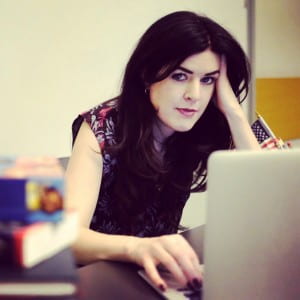Here’s a running list of themes/issues/debates we have touched on in class…
• Art versus journalism
• Photographer’s responsibilities to subject?
• The decisive moment…accidental or purposefully caught?
• Is there a duty for the public to be informed of the news? If so, how much of the news?
• What gets covered, and how does “saleability” factor in? That is, which news sells? And why? (racial, economic, class, other factors in play?)
• Coverage of war—making it feel real. Does that encourage the viewer to think she “gets it”? And are there potential concerns with that response?
• Aesthetics versus content of image
• The authenticity (or not) of one image versus the portrayal of “a larger truth”
• What makes an image powerful?
- These concerns we listed, as a class, on the date we discussed war and work by Meiselas:
- various, sometimes competing roles of media: helping to start war(foment nationalist ideologies), continuing war/perpetrating war (photos as tools of violence?), stopping war (alerting public, compelling intervention), holding assailants accountable (photos in a juridical capacity)
- ethical duties to the subjects of photos
- photography as “universal language”
- photos as visual sound bites
- Is narrative required to make us understand (to play off first Sontag and later Reiff)?
- photos of violence vs. violence done to photos (i.e. violence in effigy)
- breaks with visual convention, e.g. Parr’s fashion photography
- the everyday versus the glamorous vis a vis fashion photography–one style visually admits to being posed, the other doesn’t. Does one form convey “the real” more than the other?
- modern versus postmodern worldviews
- “The curse of history” (per Peress): damned if you do document and damned if you don’t
- The photograph is the “moment where my language finishes and yours starts.”
- New Photojournalism of the late 1970s—transparency, subjectivity, expressionism, prioritization of the personal perspective
- the success or failure of making meaning, through pictures, of the reality that surrounds
- What constitutes “evidence”? What purpose/s should evidence serve?
- how images produce political meaning/constructing a narrative without any text (a la My America by Morris)
- the rhetorical power of images
- visual metaphors, eye contact, camera angle, associational juxtaposition; mirroring v. oppositional positioning
- the business/economics of covering crisis (which crises “win out” over others and why)
- spectacle and famine
- NGOs and photography/”advocacy journalism”
- “as if” images (per Zelizer)
- Stereotypes/clichés/tropes
- Metonymic structures
- “the civil contract of photography”
- the absent image (per Azoulay and Campbell)
- relating the local situation to the larger political/social/global forces
- colonial histories as shaping patterns of viewing
- affect v criticality
- Sympathy, empathy, anger – which is the best motivator in response to images of injustice?
- Pitching to policy makers versus concerted effort to educate wide public
- Role of social media in effecting change
- The economics that undergird conflicts/crises
- When research is crucial to photographer’s work


Recent Comments